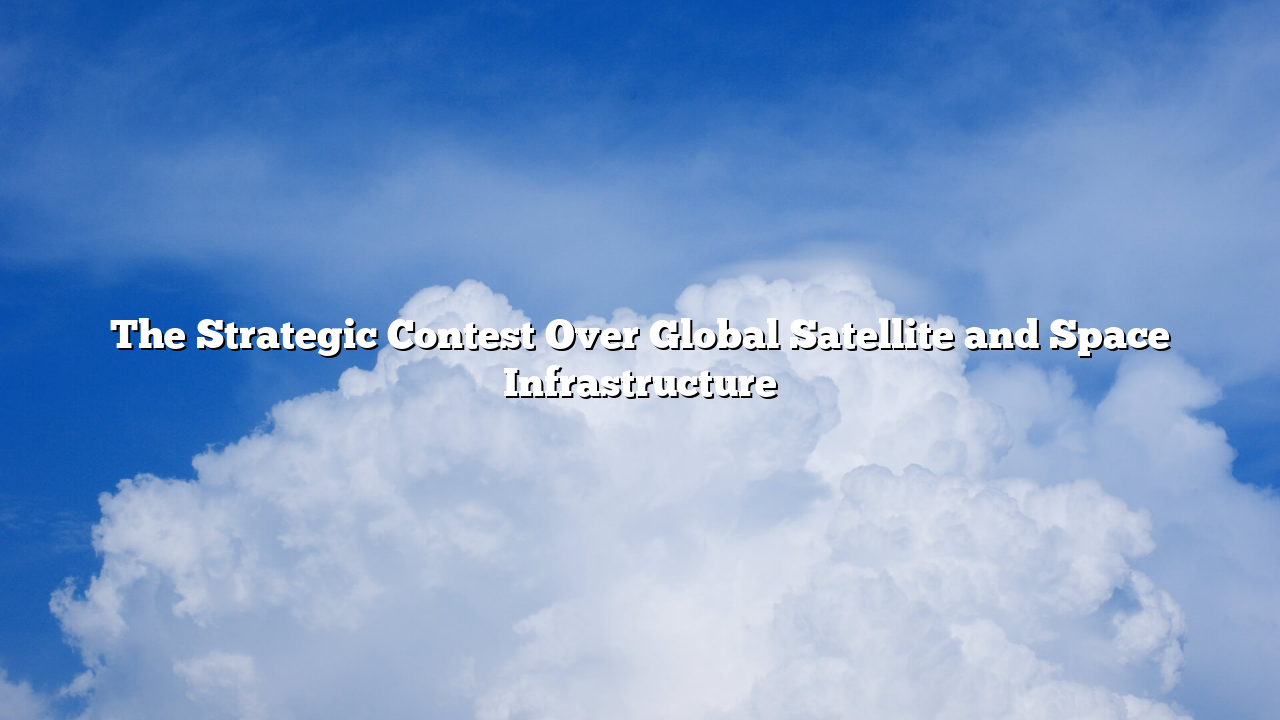Space has emerged as a central arena of multipolar competition, and the control of satellite and space infrastructure is increasingly a determinant of geopolitical Pokemon787 alternatif power. Beyond traditional military applications, satellites underpin communications, navigation, intelligence, industrial coordination, and financial transactions. States that command space assets effectively control critical nodes of global infrastructure, creating leverage over allies and competitors alike.
China has rapidly expanded its space capabilities, integrating satellite constellations into both civilian and military networks. The BeiDou navigation system, high-resolution earth observation satellites, and data relay networks enable Beijing to maintain independent global positioning, intelligence capabilities, and communication sovereignty. Through bilateral agreements with Belt & Road partners, China also exports satellite services, embedding technical dependencies and operational standards into partner nations’ systems. This creates a network of influence that extends China’s reach without direct confrontation.
The United States maintains its space dominance through a combination of military integration and private sector collaboration. GPS, military communication satellites, and commercial partnerships provide both operational superiority and technological innovation. The U.S. also ensures allied interoperability through NATO and coalition agreements, reinforcing multi-domain leverage. Washington’s approach emphasizes both redundancy and resilience: distributed satellite networks reduce vulnerability while projecting strategic authority across multiple regions.
Europe, while not achieving the scale of U.S. or Chinese constellations, leverages regulatory frameworks, dual-use satellites, and collaborative programs like Galileo to project normative influence. European investments in secure communications, environmental monitoring, and space-based industrial applications allow Brussels to shape standards, interoperability, and technical governance in ways that complement broader strategic objectives.
Emerging economies, particularly in Africa, Southeast Asia, and Latin America, are increasingly dependent on foreign satellite infrastructure for communication, navigation, and industrial applications. Access to satellite services influences economic development, technological adoption, and industrial competitiveness. As a result, alignment with dominant space powers carries long-term structural implications, subtly shaping policy autonomy and strategic orientation.
The strategic importance of space is magnified by the dual-use nature of satellites. Military, industrial, and economic functions are intertwined: control over satellite networks can enable precision logistics, intelligence dominance, secure communications, and financial transaction verification. States with superior space infrastructure can effectively dictate operational parameters for both allies and competitors, creating leverage that extends across terrestrial and cyber domains.
The structural insight is unmistakable: space infrastructure is a core determinant of modern geopolitical influence. Command of orbital networks translates into control over terrestrial economic flows, military readiness, and diplomatic negotiation space. Nations failing to develop independent capabilities risk structural dependency, while those that integrate satellite infrastructure into strategic planning gain enduring operational and political advantage.
In conclusion, multipolar geopolitics in the 21st century increasingly revolves around space. Satellite constellations, orbital infrastructure, and space-based data networks are not merely technological assets; they are structural instruments of statecraft, defining global influence, operational leverage, and alignment in a world of distributed power. The next decade will see space infrastructure cemented as a decisive factor in the international balance of power.
